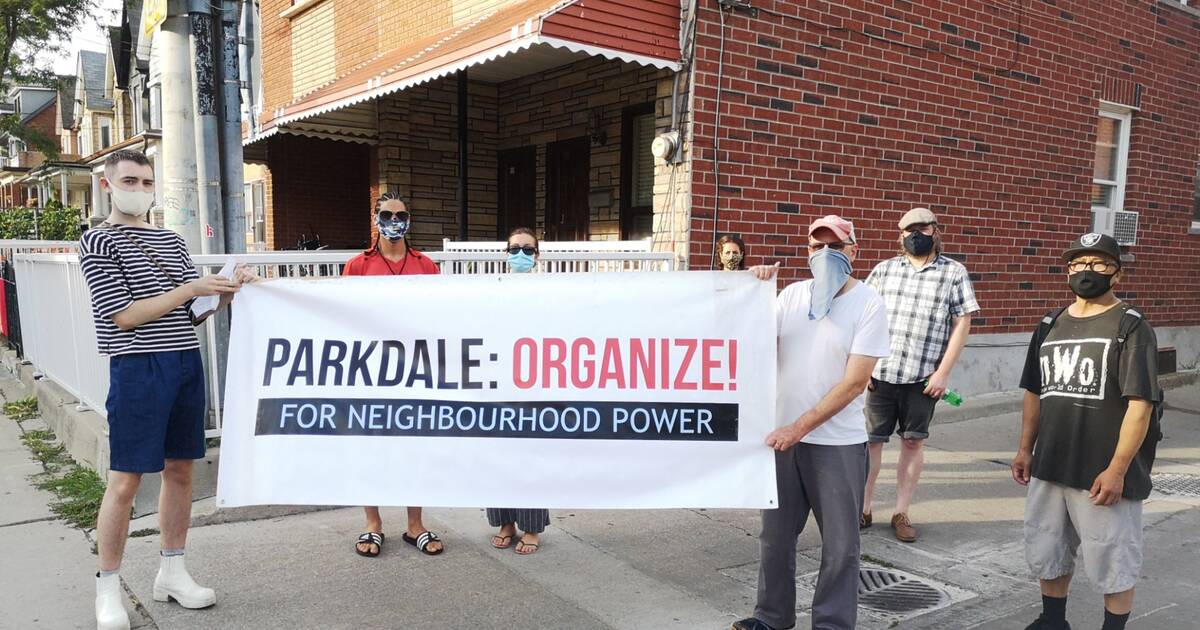


A video showing a violent eviction of an Indian tenant by a Canadian landlord has gone viral, sparking discussions on social media about landlord-tenant relationships in foreign countries. The incident, which occurred in Brampton, Ontario, has raised questions about the rights of tenants and proper eviction procedures in Canada. However, some social media users believe that the video does not show the full story and that the tenant may have violated landlord rules, leading to the eviction.
Viral Video Exposes Landlord-Tenant Tensions in Canada
A recent viral video has sparked heated discussions on social media about landlord-tenant relationships in Canada. The video, captured in Brampton, Ontario, depicts a violent eviction of an Indian tenant by his landlord.
Background
The eviction occurred on August 19, 2023, at an apartment complex in Brampton. The tenant, identified as Harpreet Singh, claims he was wrongfully evicted by his landlord, who allegedly used excessive force.
Singh alleges that he was not given proper notice or a reason for the eviction. He also claims that the landlord's actions were racially motivated.
Viral Video
The video begins with Singh being confronted by his landlord in the hallway of his apartment building. The landlord demands that Singh vacate the premises immediately.
Singh refuses, stating that he has not been given proper notice. The landlord then allegedly becomes physically aggressive, pushing and shoving Singh before forcibly removing him from the building.
Outrage and Discussion
The video quickly went viral on social media, sparking outrage and discussions about landlord-tenant rights in Canada. Many users condemned the landlord's actions as excessive and inhumane.
However, some users suggested that the video does not tell the full story. They speculate that Singh may have violated landlord rules, leading to the eviction.
Legal Implications
Under Canadian law, landlords must follow specific procedures when evicting tenants. These procedures include providing written notice and a reason for the eviction, as well as allowing the tenant an opportunity to respond.
In this case, it is unclear whether the landlord followed proper eviction procedures. Police are currently investigating the incident.
Top 5 FAQs Related to Landlord-Tenant Evictions in Canada
1. What are the legal grounds for eviction in Canada?
Landlords can evict tenants for reasons such as non-payment of rent, causing damage to the property, or violating building rules.
2. How much notice is required before a landlord can evict a tenant?
The notice period varies by province, but it is typically one to three months.
3. Can landlords evict tenants without a reason?
No. Landlords must provide a valid reason for eviction that is supported by evidence.
4. What are the rights of tenants during an eviction?
Tenants have the right to a fair hearing and the opportunity to respond to the allegations against them.
5. Can landlords use violence or force to evict tenants?
Absolutely not. Landlords must use legal and ethical methods to evict tenants. Any use of violence or force is illegal.

The Pakistani government has come under heavy criticism after images claiming that their relief aid to Sri Lanka contained expired products went viral on social media. The supplies, intended for families affected by Cyclone Ditwah, were sent as emergency assistance but were found to have an expiry date of October 2024 printed on the packaging. This discovery has sparked outrage and disbelief, with netizens slamming the Pakistani authorities for their insensitivity and lack of attention to detail.

Thousands of passengers, including Tamilians and other Indian nationals, have been trapped at the Bandaranaike International Airport in Colombo for the past few days due to the devastation caused by Cyclone Ditwah. The Indian High Commission has reaffirmed its commitment to helping its neighbor by delivering urgent humanitarian aid and disaster relief through Operation Sagar Bandhu. Along with providing relief materials, the Indian government is also coordinating with the Sri Lankan government to facilitate the safe return of stranded passengers. Meanwhile, Prime Minister Narendra Modi has expressed sorrow over the loss of lives in Sri Lanka and has promised immediate support from India.

Amidst a fragile ceasefire, Israel carried out a targeted airstrike in the Lebanese capital of Beirut, killing five people and injuring dozens more. The strike was ordered by Israeli Prime Minister Benjamin Netanyahu and has drawn criticism from both the Hezbollah and the Lebanese President. This attack marks a significant escalation in tensions between Israel and Hezbollah, who have been in a state of war for almost two years.

Rajnath Singh spoke at a public event where he reinstated the key role that cultural bonds play in India's global hegemony and asserted Sindh's continued significance to Indian heritage Seeing the ever stronger connection between Sindh and India that has recently seen acknowledgement from the people of Pakistan-occupied Kashmir themselves, in the coming years boundaries could realign providing a pathway for Sindh to once again be a part of India.

Indian Prime Minister Narendra Modi arrived in Johannesburg for the G20 Leaders’ Summit in South Africa, where he will engage in bilateral meetings and participate in the IBSA Summit. This marks the first time the G20 is being held in Africa, with the focus being on building solidarity, equality, and sustainability. PM Modi also expressed his excitement to meet with the Indian diaspora in South Africa, highlighting their strong presence in the country. He will present India's perspective on global issues, emphasizing the country's vision of 'Vasudhaiva Kutumbakam' (the world is one family).

As India commemorates its Independence Day in 2025, it's important to share the spirit and pride of this special day with the world. From inspiring morning messages to beautiful patriotic images, this collection offers the perfect words and visuals to show your love for India. Whether it's through WhatsApp, Instagram, or other social media platforms, spread the joy and gratitude for your country on this momentous day.

As jihadists in Mali successfully choke off fuel supplies to the capital, Bamako, tensions rise as the junta struggles to maintain their power. This also sheds light on Russia's promise to provide security support in the region, bringing into question the effectiveness of their aid in combating terrorism. With dwindling resources and increasing instability, the situation in Mali remains uncertain.

The Al Falah University in Dhouj, Haryana is under the spotlight as the Enforcement Directorate launches an investigation into possible terror funding and financial irregularities related to the November 10 Delhi blast. A show-cause notice has been issued to the university which was the hub of the terror module and is unaccredited. Further details reveal how central and state agencies are also reviewing potential money exchanges and individuals associated with the attack. Additionally, the university's website has been taken down for further scrutiny.

Visual ethnographic researcher Amardeep Singh delivers a presentation at the 9th Military Literature Festival, shedding light on the political, social, and military aspects of Maharaja Ranjit Singh's reign. He emphasizes the plural and secular nature of the Lahore Darbar, which included Sikhs, Muslims, Hindus, Dogras, and Europeans in its military and civil institutions. Singh also details the campaigns led by General Hari Singh Nalwa and General Zorawar Singh, highlighting their successes in fortifying Punjab's north-western frontier and expanding control to Ladakh, Baltistan, and western Tibet. This presentation challenges the narrow religious definition often associated with Ranjit Singh's rule.

During his state visit to Bhutan, PM Modi met with both Bhutan's present and former kings, reaffirming India's commitment to its neighbor's development journey. Discussions covered key areas such as energy, capacity-building, connectivity, and defence, while joint activities and agreements highlighted the strong cultural and spiritual bonds between the two countries. This visit further strengthened the unique and longstanding partnership between India and Bhutan, setting the stage for future collaboration and mutual prosperity.